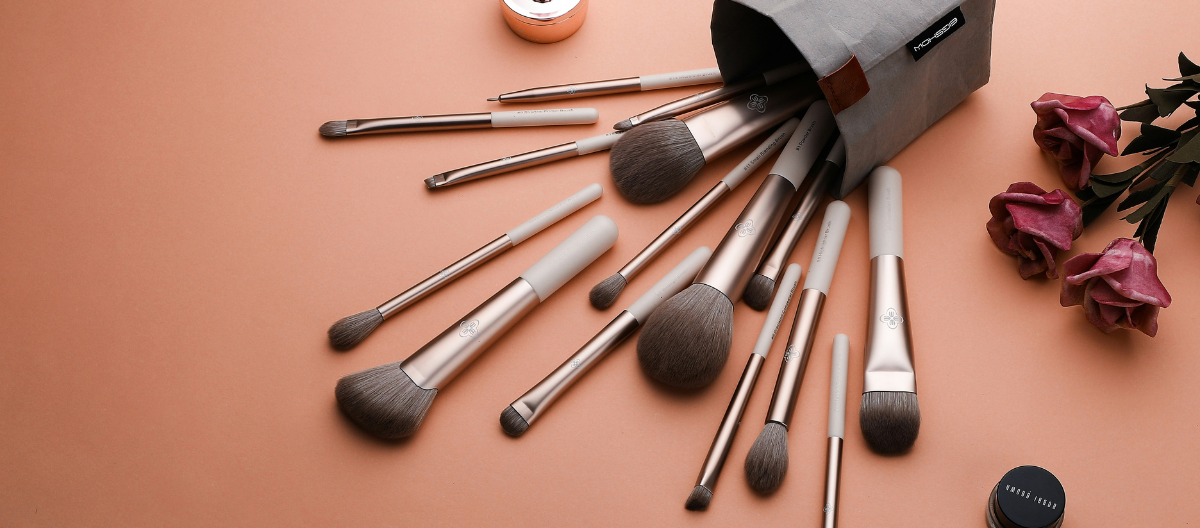Makeup brushes are essential tools for achieving flawless makeup application, but over time, they can wear out and become less effective. Knowing when to replace your makeup brushes is crucial for maintaining your skincare routine, ensuring hygiene, and achieving the best results. Here’s a guide on when to replace your makeup brushes:
Visible Damage
Bristle Wear and Tear: If the bristles of your brush are frayed, bent, or missing, it’s time for a replacement. Damaged bristles can affect the application of your makeup and may also cause irritation to your skin.
Handle Issues: A broken or cracked handle can make it difficult to use the brush effectively. If the handle is damaged, it’s usually best to replace the brush entirely.
Reduced Performance
Uneven Application: If you notice that your brush is no longer applying makeup evenly or blending products as well as it used to, it may be time for a replacement. Worn-out brushes can lead to streaky or patchy makeup.
Loss of Shape: Brushes that have lost their original shape or are no longer maintaining their intended form may not perform well. For example, a foundation brush that has become misshapen may not provide a smooth, even application.
Persistent Odors or Stains
Odor: If a brush retains an unpleasant smell despite thorough cleaning, it could indicate that it’s time to replace it. Odors can be a sign of mold or bacteria growth, which can affect your skin health.
Stains: While some staining is normal, if a brush has persistent stains that don’t come out with cleaning, it may be a sign that the brush is deteriorating or harboring bacteria.
Hygiene Concerns
Bacterial Build-Up: Even with regular cleaning, makeup brushes can harbor bacteria over time. If you’re experiencing frequent breakouts or skin issues that you suspect are related to your brushes, consider replacing them to ensure better hygiene.
Cleaning Difficulty: If you find it increasingly difficult to clean your brush thoroughly or if it takes a long time to dry, it may be an indication that the brush is no longer in optimal condition.
Changes in Makeup Products
Product Compatibility: If you switch to a different type of makeup product (e.g., from powder to cream), your old brushes may not work as well with the new formula. Replacing your brushes with ones designed for the specific product can improve application and performance.
New Formulations: Sometimes, new formulations of makeup products may require different brush types. Updating your brushes can help you achieve the best results with your current products.
Frequency of Use
High Usage: Brushes that are used frequently will naturally wear out faster than those used occasionally. If you use certain brushes daily, they may need to be replaced more often due to regular wear and tear.
Special Occasion Brushes: Brushes used only for special occasions or infrequently may last longer. However, if you notice any of the issues mentioned above, even occasional brushes should be replaced as needed.
Here are some makeup brushes for doing a flawless makeup look
e.l.f. Cosmetics Angled Bronzing Brush $2.55

e.l.f. Cosmetics Total Face Brush $2.55

e.l.f. Cosmetics Multi-Use Face Brush $2.55

e.l.f. Cosmetics Foundation Brush $2.55

e.l.f. Cosmetics Powder Brush $2.55

e.l.f. Cosmetics Putty Bronzer Brush $4.25

e.l.f. Cosmetics Liquid Blush Brush $4.25

e.l.f. Cosmetics Highlighter Brush $4.25

e.l.f. Cosmetics Blending Brush $4.25

e.l.f. Cosmetics Fluffy Eye Blender Brush $4.25



